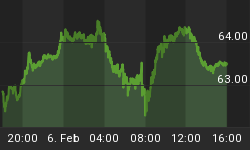Summary
Federal Reserve indexes say that the economy is going at about its long-term trend rate, and financial stresses are at low levels.
Stock markets indicate a shift toward a more conservative bias (with the exception of emerging markets showing life from depressed levels).
Bond markets show a shift back toward bonds, and toward longer maturities in an apparent goal of more safety (with the exception of emerging markets improving from depressed levels).
US stock sectors show a move away from economically sensitive sectors, such as the consumer cyclicals; toward economically defensive sectors such as utilities and consumer staples (even though utilities are well overvalued and staples are expensive). Energy is also doing well recently.
Some of these changes may be the result of fears over the Russia/Ukraine situation, and others may be concerns about Chinese banking problems; as well as a sense that stocks may be at the upper end of fair value. Note that market reactions to geopolitical events have historically generally been overdone and short-lived.
![]() QVM Client Letter (Vol. 7 No. 7): Current Market Conditions
QVM Client Letter (Vol. 7 No. 7): Current Market Conditions















